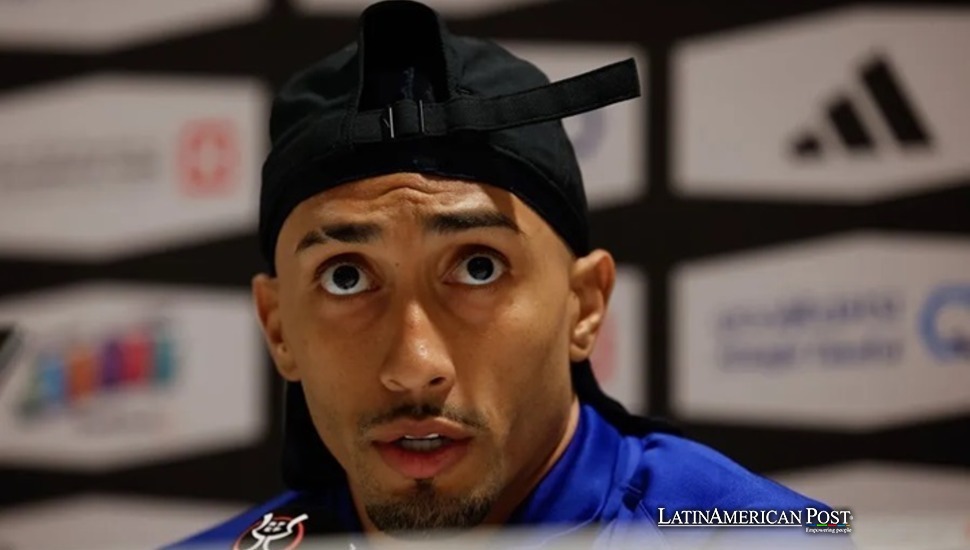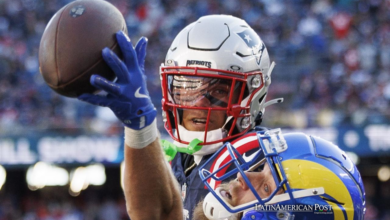Brazilian Sensation Raphinha's Soaring Football Journey

Through the narrow alleys of Porto Alegre’s favelas into the top ranks of European soccer, Raphinha kept going despite obstacles. People turned him away because of his thin frame and short stature, yet this Brazilian athlete transformed those rejections into motivation. He moves across fields gracefully, making his mark as a central figure in elite competitions.
Small Beginnings Amid Great Obstacles
Raphael Dias Belloli—later known worldwide as Raphinha- a slight boy of just nine years—learned early on that speed and skill could compensate for a light frame. Growing up in the rough outskirts of Porto Alegre, in a district called Restinga, the young Raphinha was determined to climb out of a setting dominated by poverty, drugs, and restricted opportunities. He gravitated to football partly because older kids would let him join their games so long as he could hold his own. The only way he could indeed do that was by perfecting the art of the dribble. Soon, his lithe build and quick movements made him elusive, and mastering the “regate” became his ticket to acceptance on the pitch.
Yet, acceptance only extended so far. He survived on minimal resources. Raphinha shared a small apartment with his parents, younger brother, and their many pets. School, training, and daily life often intersected. On multiple occasions, the bus driver would generously pretend not to notice that Raphinha could not afford the fare; on other days, he survived thanks to strangers or teammates who bought him a quick snack between practice sessions. These struggles never diminished his resolve. If anything, adversity hardened the conviction that football was his only path forward, his means of escaping a cycle of marginalization.
At nine years old, he faced a significant blow when the youth teams of Gremio, the legendary Porto Alegre club, rejected him for being too physically underdeveloped. The disappointment could have derailed him, but giving up did not fit his family’s mindset. His father, Maninho, was a musician by trade—someone who taught Raphinha the power of perseverance. Instead of quitting, the youngster turned to any footballing avenue available, linking up with small local teams like Sport Sul, Academia do Morro, and E.C. 2014, each within range of his cramped neighborhood. Later, as his ambition soared, he ventured farther afield: São Paulo’s Audax and then the Imbituba club in Santa Catarina, roughly 330 kilometers from home.
During these early wanderings, Raphinha cultivated more than just footwork. Living away from home instilled an intense independence in him. When other boys his age idly passed the time, Raphinha was zeroing in on strengthening his technique or studying how more accomplished players found success. He discovered how to self-motivate, trusting each new environment would refine his talents. He was not chasing superficial fame but the chance to prove that a slim, resilient kid from a gritty borough could make an indelible mark on the professional game. Eventually, a more significant break arrived: Avaí in Florianópolis, a stepping-stone to the interest of scouting networks far beyond Brazil’s borders.
Setting Foot in Europe: Deco’s Intervention
By 2016, Raphinha’s persistence was paying off. He caught the attention of sports agents and ex-players, notably the former Portugal and Barcelona star Anderson Luís de Souza, known as Deco. Himself born in São Paulo, Deco understood the plight of a young, underappreciated footballer seeking a breakthrough. Convinced of Raphinha’s potential, he looked to place the talented winger in Europe. The initial plan pointed toward FC Porto, but the Portuguese giants ultimately passed—Raphinha was again labeled too slight to compete at the highest level. That familiar critique frustrated him but did not deter him.
Deco soon found another suitor: Vitória de Guimarães, a smaller club in Portugal’s top flight. The club paid 600,000 euros for Raphinha, which seemed excessive for a nineteen-year-old who had not yet played in European competitions. But the expenditure became a triumph no one expected since he fit into the squad from day one. Through the direction of Sérgio Conceição, he made progress in his abilities on the field. He netted goals, dished assists, and added enough muscle to balance his lightning pace with newfound physicality. Over two seasons at Vitória, Raphinha participated in 40 league matches, logging 4 goals and 7 assists—a modest tally but enough to spark the curiosity of other Portuguese powerhouses.
The next rung in his upward climb was Sporting CP, which secured him in 2018 for 6.5 million euros. The transfer placed him at the center of a notable Portuguese team. Raphinha left after one season at his previous club, heading to Rennes through a 21 million euro transfer. The French squad tested him against more skilled opponents. In these games, his deft footwork and sidestep of the defenders caught the scouts’ eyes. His performances matched expectations, prompting interest from teams abroad.
The path ahead twisted into unfamiliar directions. He moved from one nation to another without pause, proving his value through each change of scenery. His reputation expanded after each transfer. At the end of the 2020 transfer period, Leeds United from the Premier League needed new players. The team’s manager, Marcelo Bielsa, wanted someone to add flair to their offense. Leeds identified Raphinha as the solution, spending 18.6 million euros to sign him on deadline day. The Brazilian had 30 minutes to decide whether he would jump to England. He said yes.
Regate, Grit, and the Barcelona Connection
In England, Raphinha caught everyone’s attention. Under Bielsa’s fast-moving setup, he made runs through defenses, connected passes in unexpected ways, and took control near the opponent’s goal. As matches went by, this once mysterious player became a name that Premier League fans recognized. His numbers for scoring and setting up goals kept going up, which matched what analytics experts had seen in their statistics about his impact compared to other attackers across Europe. Indeed, a combined measure of his goal involvements indicated he was second only to Liverpool’s Mohamed Salah at one point in the 2021-22 season.
Meanwhile, behind the scenes, an old connection was blossoming.
Raphinha often points to Ronaldinho as the idol who convinced him that Barcelona was the ultimate dream. Both hail from Porto Alegre, and Raphinha’s father, Maninho—known for playing with his ‘pagode’ group Samba Tri—shared an unlikely friendship with the legendary Ronaldinho Gaucho. The famously carefree star once performed incognito at several of the band’s concerts, hidden behind a mask, delighting unsuspecting fans at a local Barcelona venue in 2006. For young Raphinha, that story hinted at how football greatness and a sense of community could merge into a powerful life path.
In mid-2022, Barcelona became a real possibility for Raphinha. Through his associations with Barcelona’s management team, Deco demonstrated the player’s capabilities. The Brazilian selected Barcelona as his preferred destination despite interest from teams in England. The price of 58 million euros plus nine million in additional payments indicated how much Barcelona believed in what he could bring to the team.
At first, Raphinha needed time to adjust. The Spanish game presented new challenges, as did Xavi Hernández’s requirements for his players. On the wing, his quick feet and cheerful demeanor became familiar sights, yet he had to improve his choices near goal, learn defensive duties, and get used to Camp Nou’s expectations. In time, his talent began to show: he made precise passes, showed clever touches, and ran forward with speed that reminded fans of his early career. Raphinha’s synergy with Xavi improved over time, culminating in an explosive second campaign, where fans watched him rack up a combination of 21 goals and 10 assists across La Liga and Champions League action.
Writing the Next Chapter Under Europe’s Spotlight
The trajectory of a once-rejected, wiry teen from Restinga now includes improbable leaps across multiple countries, culminating at FC Barcelona—a destination Raphinha once perceived only in daydreams. The road, however, was never smooth. Rejection shadowed him through multiple youth squads. He was labeled scrawny and physically unprepared or overshadowed by other prospects. But in forging success after each setback, he cultivated dogged tenacity.
Ironically, the “mirradinho” or “little skinny one,” as Raphinha was teased, propelled himself to stardom with the same advantage that turned heads in his early pick-up matches: mesmerizing dribbles. Even in the data-laden era of modern football, his attacking attributes stand out—21 goals and 10 assists in Europe’s top competitions, plus another half-dozen contributions in domestic cups. Analysts rank him just behind the most formidable attackers on the continent. These feats are derived from a boy who was once forced to hustle for bus fare, which might be why Raphinha’s story resonates strongly among fans.
His father’s “pagode” music and warm camaraderie with Ronaldinho remain essential to his identity. In interviews, Raphinha often smiles when remembering how the elder Gaucho used to don a mask and play with Samba Tri. Those older intangible influences taught Raphinha that sport and art share a fundamental spark: a capacity to connect people through joy, creativity, and surprise. On the field, he channels that energy into the moves that regularly leave defenders flummoxed, forging a direct bond with the crowd at Camp Nou or wherever he performs.
Yet the player does not pretend his story is done. He is 26, an age when many stars begin the prime of their careers. Barcelona’s system under Xavi emphasizes fluid, possession-heavy football, a style that may continue to refine his craft in the final third. Coaches and analysts have praised his adaptability—he is equally comfortable cutting in from the right to blast a long-range shot or hugging the touchline to provide incisive passes across the box. Indeed, if he retains his momentum, Raphinha could become the face of the next generation at Barcelona, filling a void left by some of the club’s departing icons.
For the present, this practical wide attacker puts attention on becoming better at his craft, with the knowledge that players battle hard for positions in this roster of accomplished athletes. The Brazilian national team stands as his next target – after receiving invitations to join their ranks, he intends to secure his position next to the country’s premier soccer names. If he continues matching or surpassing his goal and assist tallies, he might carve out a starring role for Brazil in upcoming significant tournaments. The notion of a physically slight attacker conquering Europe and taking on the mantle of a national hero parallels the trajectories of storied compatriots—players like Ronaldinho, Rivaldo, and others who once graced the Camp Nou and the yellow jersey.
Through his memories, Raphinha thinks about a song from “Samba Tri,” where his father served as a bandleader. The track bears the name “Goleador” and pays tribute to Ronaldinho, yet its message also links to Raphinha. In the lyrics, a section speaks of how spectators see football as an easy task, a simple game that takes place under bright lights in large stadiums. But the reality, the verse insists, requires “regular la vida,” or dribbling past life’s challenges, navigating a labyrinth of hardship to avoid becoming “otro superior”—just another person battered by society’s harsh edges.
That line captures the essence of Raphinha’s path: a determined athlete who overcame poverty, repeated rejections, and the temptations of a troubled environment. He believed raw talent, inner drive, and a positive mindset shaped his path. On reaching the main stage, the memories of past hardships stay with him. With each sprint past defenders, memories surface of a young boy who moved alongside taller teammates, turning touches into opportunities.
Also Read: Latin American Baseball Teenagers Left in Limbo by Sasaki’s Signing Chaos
Through his soccer journey, Raphinha demonstrates the unexpected paths players take. From Porto Alegre to Leeds, through setbacks at Gremio, until Barcelona opened its doors, across fields stretching from the dirt patches of Imbituba to the grandeur of Camp Nou, his path shows how skill mixed with persistence conquers obstacles. As the following chapters of his career unfold, he remains faithful to the flair that sustained him as a child—forever the slender dribbler prepared to dazzle defenders and fans alike. And that, in many ways, is the purest embodiment of Brazilian football’s soul.





